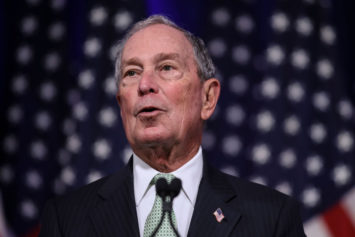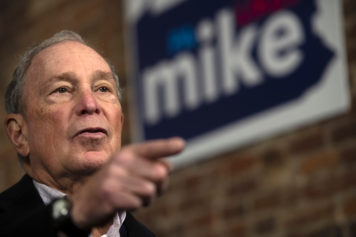
Schneiderman directly punctured the claims that Mayor Michael Bloomberg has been making for the past decade in championing the controversial policy.
Schneiderman’s report revealed that just 3 percent of the approximately 2.4 million New Yorkers stopped between 2009 and 2012 – most of them Black and Latino men – led to cases with a guilty plea or conviction at trial. And of those 3 percent, just 1 in 10 had a sentence of 30 days or more.
Moreover, according to Schneiderman, there was a significant racial disparity in the pleas or convictions that resulted from arrests for marijuana possession, which triggered a large portion of stop-and-frisk arrests.
While NYPD arrested over 10,500 Blacks for possessing the drug, about 5,600 Hispanics, and less than 2,000 whites, the court dismissed about 75 percent of these cases with white defendants, while only dismissing about half of those with Black defendants and about 60 percent of Hispanics.
The stop-and-frisk policy is extremely politically explosive in the city, raising speculation about why Schneiderman chose this moment to issue a report that challenges Bloomberg’s assertions.
Schneiderman clearly doesn’t mind the publicity—it is worth noting that the last two New York attorney generals, Eliot Spitzer and Andrew Cuomo, went on to become governor.
The Attorney Report appears to back up the decision of U.S. District Court Judge Shira Scheindlin, whose scathing decision in August lashed city officials who had “turned a blind eye” to evidence that officers carried out the searches in a “racially discriminatory manner,” violating individuals’ right to privacy and equal treatment under the law.
“In their zeal to defend a policy that they believe to be effective, they have willfully ignored overwhelming proof that the policy of singling out ‘the right people’ is racially discriminatory and therefore violates the United States Constitution,” the judge wrote.
Scheindlin wrote that the unconstitutional stops have exacted a “human toll” in demeaning and humiliating law-abiding citizens.
That decision outraged Bloomberg, who immediately filed an appeal. In response to the appeal, a federal appeals court in a remarkably unusual ruling threw the entire stop-and-frisk policing strategy into disarray by halting the sweeping changes that Scheindlin had imposed on the New York Police Department.
The three-judge panel accused Scheindlin of judicial misconduct and removed her from the case, handing a stunning victory to Bloomberg and NYPD chief Ray Kelly just weeks before Bloomberg leaves office.
Bloomberg and city officials had long complained that Scheindlin, who was overseeing three cases related to stop-and-frisk, was biased against the city and the NYPD.
Though it halted the effects of Scheindlin’s ruling, the Court of Appeals for the Second Circuit didn’t rule on whether her decision that stop-and-frisk violated the constitutional rights of the city’s Black and Hispanic residents was the correct conclusion.
“We intimate no view on the substance or merits of the pending appeals,” the panel said in the two-page order.
The appeals court appointed a new judge, John Koeltl, and instructed him to put off “all proceedings and otherwise await further action” from the panel. The judges said Scheindlin “ran afoul” of the judiciary’s code of conduct by compromising the “appearance of impartiality surrounding this litigation.” The panel also criticized how she had steered the lawsuit to her courtroom when it was filed nearly six years ago.
The reversal was a shocking and painful ruling for the city’s Black and Hispanic community and for the lawyers involved in the case.
But on Wednesday, the appeals court appeared to backtrack from its ruling. While denying an unusual motion by Scheindlin to be reinstated, the court suddenly was full of praise for Scheindlin, saying she was “a long-serving and distinguished jurist” and emphasized that it had made “no findings of misconduct, actual bias, or actual partiality.” The panel said it was simply the “appearance” of partiality they objected to, which is why they removed her from the case.
“It was really quite extraordinary, and that’s the word in legal circles,” James Cohen, professor at Fordham University’s School of Law in New York, told the Christian Science Monitor. “This is an example of a very conservative panel – and it is known to be a conservative panel – that reached out and in quite an unprecedented fashion, slapped the district court’s face.”
In response to the attorney general’s report, NYPD spokesman John McCarthy told the Associated Press that the attorney general’s analysis was flawed, saying it ignored situations in which stop-and-frisk actions prevented crimes from happening, and in which there would be no arrest.
The entire matter becomes a hot political issue as Mayor-elect Bill de Blasio, a vociferous critic of stop-and-frisk whose outspoken opposition to it was considered a major factor in his stunning landslide win last week, prepares to take office amid his promises to drop the city’s appeal of Scheindlin’s ruling.
So the Scheindlin ruling may stand as the law of the land eventually, but as of now, the NYPD has resumed using the stop-and-frisk tactics.


